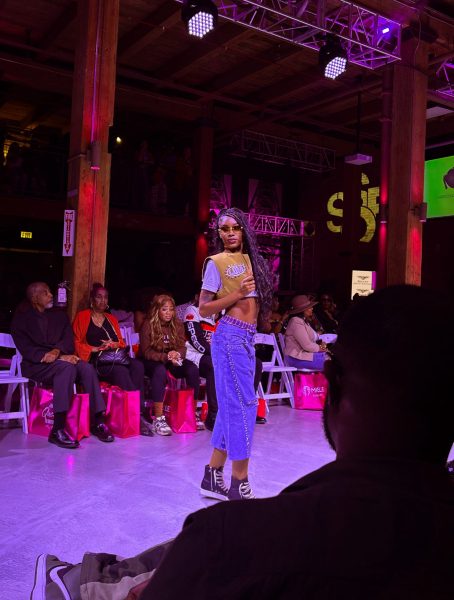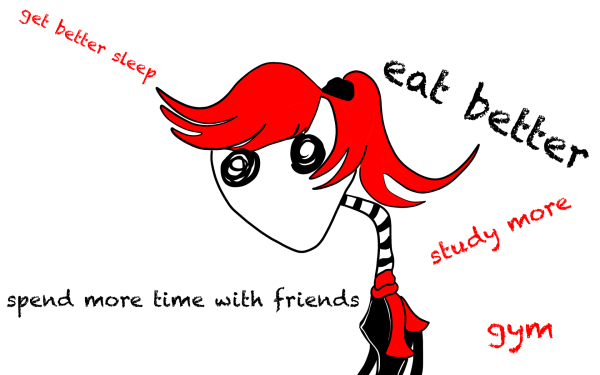The death of a smile: It’s time to stop forcing women to bear the weight of constant happiness
Telling someone to smile when they’re not is like reverse empathy; by doing this you’re not only skipping over every opportunity to find out what’s really on their mind, you’re also asking them to falsely match whatever preconceived idea you have of what they “should” look and feel like. Acknowledging that this phenomenon happens predominantly to women and is largely instigated by strangers also reveals a gross undercurrent of sexism hiding in these seemingly innocuous interactions. Despite this sexism being obvious to most women, it is nonetheless experienced by them every day.
When describing her first experience with this, sophomore Chae Wohn said, “I was walking out of the CTA and this man was just sort of lingering by the station and he said, ‘You should smile more, beautiful!’ I just thought, ‘Who are you?’ ‘Have we met?’” She says these encounters like these have changed her behavior towards some strangers. “I tend to smile at people if they look my way anyway, regardless of gender. But honestly, if I see a sleazy-looking guy now, I’ll tend to glare more than smile because I feel like that’s defying what they expect you to do. I don’t want to give that back, I don’t want to fall into that expectation,” said Wohn.
Junior Margaux Joelson thinks the expectation for women to be “on” all the time reaches far further than just a smile. “I think (the expectation) exists but I think it’s existing in new ways. A lot of it has to do with social media. There’s a push for women to come off as being very positive, ultra-feminine and super smiley. It’s a little different than interpersonal interaction, but it’s still how you present yourself.”
When asked if she’s ever been directly told to smile by a man, Joelson said, “Yes, it’s usually been people on the street or on the train. It’s also usually not when I’m having a conversation or anything. It tends to be someone yelling when I’m minding my own business.”
Having personally experienced being told to smile more by older men than by people my own age, I wanted to know if other women felt similarly. In regards to this, Joelson said, “I definitely feel like the older men are, the more nice I have to appear. With men our age, it feels more like a peer-to-peer level, but to have a patriarchal thing and then (an) age or social expectation on top of that pushes (the expectation) even more.”
Despite how prevalent this experience still is for many women, younger generations may feel more hopeful about the expectation changing in the near future. “I think (the pressure) is mainly a generational thing. Women were supposed to be very docile, pleasant and emotionally warm, and they used to have to be accepting of guys’ advances. I definitely think that those expectations are changing (…) I think it’s frowned upon now to expect women to be subservient to men,” said Wohn.
For people who don’t experience this pressure or who haven’t had a similar encounter, it may be hard to imagine how you would respond if it did happen to you. But clearly the thought of someone doing this looms in the mind of more than a few women. This phenomenon has also had its share of time in the pop-culture spotlight. Shows like “Inside Amy Schumer,” “Master of None” and “Broad City” have all featured scenes discussing catcalling and forms of street harassment. The “Broad City” episode actually took on smiling specifically, when a man on the street tells the two main characters they should smile, to which they respond by drawing smiles on their faces with their middle fingers. A Brooklyn-based artist named Tatyana Fazaliz has also created a travelling art series called “Stop Telling Women to Smile” that features large public murals of real women who have been harassed, along with text inspired by the subjects’ stories – there’s even one in Chicago on Wabash Avenue.
At the heart of it, when someone tells you to smile they are both disregarding your inner emotional state and telling you it should be altered to either amuse them or just make them more comfortable. After centuries of fighting to not be seen only as docile sources of silent entertainment, don’t you think women deserve to not be forced to be exactly that while simply going about their everyday lives? No group of people deserve to bear the weight of cheering up the rest of society at the cost of their own emotional expression, especially when the way they’re asked to do that often verges on harassment.








Axauv • Oct 10, 2019 at 8:38 pm
This raises good points, and I think it’s generally older men who still drop this idiotic approach on women, which as you say totally negates anything she might be feeling, it’s not just weird and creepy, it’s rude.
That being said, we do have to admit the way our current society operates puts the burden of patience on women. The reason for this is very simple: if a man does not approach a woman, he will grow old and die single. Male-initiated courtship is still the law of the land in almost every country on earth, which is odd considering it’s 2019. The exception to this of course is men who are known quantities and of a status the woman in question is seeking; but when it comes to strangers, 99% of the time the man will be expected to break the ice.
And men can’t read minds, so if he doesn’t speak to women who are strangers at seemingly random places, he’s going to be stuck single. Now, the caveat here is that there are better ways to go about it. Genuine kindness and warmth is a great way to approach ANY stranger, male, female, attractive, scary, etc. So when men take this to heart they don’t come off as creepy, and as long as she doesn’t project the last creep she met onto this new guy, a pleasant conversation can easily follow.
Both sexes have their advantages and disadvantages. Men must fight for every ounce of attention from women, while women are drowning in attention but it can be difficult for them to control the QUALITY of that attention. At the end of the day we pretty much even out. As an outgoing creative sort of fellow, I don’t mind having to do the work, because the bonus is I can turn invisible whenever I want, and even though I take care of myself and I’m on good terms with the mirror, women won’t talk to me if I’m not presenting as very open to that. This is a perk women don’t have.
Oh and no one has ever asked me to smile more lol. Another perk 😉
lisagd • Sep 30, 2019 at 12:23 pm
@GSH: It’s easy to say that, but ignoring the man who just told you to smile just makes him hurl abuse at you. That’s not a risk most women are willing to take. Who knows if it will escalate to violence? Men need to understand that people have a whole range of reasons for not smiling, and it’s none of their business whether a woman is smiling or not. Besides, when’s the last time you saw a man tell another man to smile?
GSH • May 3, 2018 at 1:56 pm
Seriously, Maddie? Do whatever you want to and ignore the creepers. You have more important things to think about.